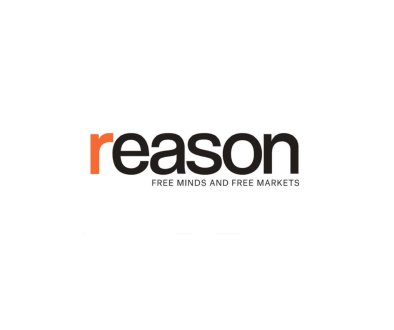Lawrence Wright: America’s Misadventures in Wars, Cults, and Panics
Today’s guest is the legendary journalist and New Yorker staffer Lawrence Wright. He is the author of Going Clear: Scientology, Hollywood, and the Prison of Belief; The Looming Tower: Al Qaeda and the Road to 9/11; and The Plague Year: America in the Time of Covid.
Wright talks with Reason‘s Nick Gillespie about The Human Scale, his new novel set in the war-torn Middle East, and why the Israeli-Palestinian conflict keeps burning even as most of the 20th century’s conflicts have cooled. They also go deep on Wright’s exposés on the war on terror, satanic panics, and how our craving for belief can lead us to madness. Then they turn to Texas, Wright’s home state and the place he says is the future of America. What exactly does it mean that we’re all becoming more like Lone Star State?
This discussion took place at a live event in New York City.
0:00— Introduction
1:20— Texas: the future of American politics
3:17— ‘The Human Scale’
5:38— Why the Israel-Palestine conflict endures
12:12— ‘Thirteen Days In September’ and the Camp David Accords
23:37— America as both egocentric bully and colony for the rest of the world
26:17— ‘Remembering Satan’ and the ‘recovered memories’ panic
33:29— How abortion anxiety may have fueled a moral panic
37:07— Insurance companies ended the panic by denying quack psychiatric treatments
39:15— The will to believe often overrides logic and evidence
40:55— Wright’s teenage religious fervor led to interest in Scientology
42:19— How Scientology seduced Hollywood
47:26— ‘Going clear’ and Scientology backlash
50:03— Getting Paul Haggis on the record about Scientology
52:55— Texas in American mythology
Transcript
This is an AI-generated, AI-edited transcript. Check all quotes against the audio for accuracy.
Nick Gillespie: This is The Reason Interview With Nick Gillespie.
All right, Lawrence Wright, late of the Texas Monthly, currently with The New Yorker, and I guess you live in Austin. Do people punch you in the face when you walk down the street because you’re at The New Yorker?
Lawrence Wright: Austin is not the usual Texas town. You know, it’s a very, very blue city with a recent influx of California libertarian billionaires.
Uh oh.
So, you know, it’s changing a lot.
I’m two of those things. I’ve lived in California, and I’m a libertarian. So the third will follow.
Just one more step.
But I was joking about Texans’ attitude toward New Yorkers. I remember the old Pace Salsa ads, where they would make fun of salsa that was made in New York City. Austin—and Texas more broadly—is very cosmopolitan these days, isn’t it? Or getting there.
You know, it’s the second-largest state, and by 2050, it’s projected to be the size of New York and California combined.
Wow.
So, whatever you think of American politics, it’s going to be Texas politics from now on out. And I can tell you, speaking from the belly of the beast, we Texans are not ready for that.
We haven’t educated our kids, we haven’t got the infrastructure—there are a lot of problems we have. We don’t take care of our citizens’ health. But all that aside it’s the hot spot on the map, and there doesn’t seem to be anything that’s likely to change it unless we run out of water. I think if there’s one thing, one real vulnerability that Texas has, that’s what it is.
We’re going to come back later in our conversation to talk about Texas—not only Texas’ future but Texas as the future of America. But let’s start now. You have a new novel out. It’s called The Human Scale. It is a police procedural that’s set in the Middle East, in the occupied territories mostly, right? In Hebron. It follows Tony Malik who is half Irish and half Palestinian. And I thought, as a half Irish, half Italian, I had problems.
But he’s an American FBI agent who is investigating the murder in Gaza of an Israeli police chief. Tell us, what prompted you to write this novel now—and as a novel, as opposed to nonfiction?
Well, I’ve written about the Middle East for much of my career. And, you know, I was always puzzled by what made this conflict so durable. I mean, I’m the same age as Israel. It’s a young country. But in my lifetime, I have seen apartheid end. I’ve seen a black man elected president. I’ve seen the Soviet Union dissolve—all these things that were never going to happen until they did.
I’ve seen Vietnam, Iraq I, Iraq II, Afghanistan—all these are past history now. But this keeps going and going. One of the reasons I decided to do it as a novel is that, you know, you can talk to people, you can look them in the eye, but only a novel allows you to go through the eyes and see the world through your characters’ own perspective. That would allow me, I thought, to try to get closer to what are the elements that make this war go on and on.
And it’s not just Israel and Palestine. It’s infected our own politics. We’re in the streets, we’re on the campuses. The whole Western world is absorbed with this argument, which has been going on for as long as I’ve been alive.
So what do you think? What’s the root of it—or what’s enough?
Well, there are several obvious ones. One is God. If you look at the Torah and the Old Testament, God promised this grant of land to Moses—twice, as a matter of fact—but they’re different parcels. The first one is a little more generous. It goes from the Red Sea to the Euphrates, which would take in Jordan, the West Bank, parts of Lebanon, a little bit of Saudi Arabia.
And then the next time he gives the promise of the Promised Land, it’s more like modern Israel, with the West Bank in it. And then, when Moses dies and Joshua takes over, God commands him to go into Judea and Samaria and kill every living thing. And so that’s how the Holy Land was birthed, according to the Bible.
So if you’re Jewish and you see this as God’s promise to you, then, you know, you don’t have to hear anything else. The Quran also agrees that God gave Moses this gift but that the Jews lost the birthright because they turned against God and He took it away from them. That’s one of the main problems.
Another real dilemma—I was in Gaza in 2009. It was right after Operation Cast Lead, which was one of those periodic, what the Israelis call “mowing the lawn.” In this case, Hamas had kidnapped this young Israeli soldier named Gilad Shalit, and they were still holding him when I went to visit. He was held for five years. The Israelis never found him. They finally exchanged him for 1,000 Palestinian prisoners.
And I got to wondering: In what scale do you measure the value of a human being? How does one person get to equal 1,000? This disparate valuation of people’s lives is evident right before us—1,200 Israelis have been slaughtered, and yet 50,000 Palestinians have been killed so far that we know of. At what point does the scale get balanced?
There’s one other thing that I was really curious about. I thought I had figured out the way to peace—many people have. It’s like the illusion of water in the desert or something like that. But I read this book by David Ben-Gurion and Yitzhak Ben-Zvi. Ben-Gurion was Israel’s founding premier, and Ben-Zvi was its second president.
They were living in Manhattan in 1906 after being kicked out of the Ottoman Empire. They wrote this book in which they described, and this is mainly Ben-Zvi, because he was kind of an amateur archaeologist. He would wander in the Arab villages and see candles in the windows on Friday night. He would see Hebrew in the cemeteries. And he formed a theory that the Palestinians are Jews—or were. They were the remnant of the Jewish population that didn’t go out in the diaspora. They stayed.
Then, as centuries passed, they converted to Christianity or to Islam to avoid paying taxes. And actually, genetics have proved that theory right. The Jewish population in Gaza is very similar to the Ashkenazi, through DNA. If you extrapolate and go back in time, they were probably identical.
So I thought I would just go to Israel and tell them, “Yeah, you know, these guys are Jewish.” And I expected, “Oh my gosh, we didn’t know!” No. “We knew that.” And that made it more complicated for me.
So I found a book that has been very—it’s an arresting book for me. It’s called The Need to Have Enemies and Allies by a Cypriot American psychiatrist named Vamik Volkan. He grew up in Cyprus, populated by Greeks and Turks—these historic antagonists. And they’re very similar people. They dressed the same. They each had a white robe. The men who were Turkish would have a green belt and the Greeks would have a blue belt. They smoked different cigarettes. By such things, you knew who your enemy was.
In Northern Ireland, the Catholics and the Protestants would paint their doors different colors so you’d know who lived there. The Hutus and the Tutsis were so similar, they had to ask which tribe you’re in before they killed each other.
He referenced [Sigmund] Freud’s idea of the narcissism of minor differences—that it is people who are more similar who have the bloodiest civil wars, and so on. According to Freud, it’s because, due to the similarity, you project onto your twin the parts of your own nature that you despise. So you’re actually fighting, in a way, against your own nature.
It’s an interesting theory. But it leaves you grasping for: How is it that Arabs and Jews can live together peacefully in Brooklyn and they can’t in the Middle East? I think we have more to learn about that.
Yeah, you also wrote a book called Thirteen Days in September, which was kind of a paean to Jimmy Carter for brokering the Camp David Accords. You mentioned Jews and Arabs—or Muslims—in the Middle East. Christians have kind of vacated that space. In talking about that book, you attribute a lot of what happened at Camp David to Carter’s Christianity. Could you talk about that? I mean, religion is generally seen as the stumbling block, particularly in the Middle East. Could it also be a way to resolve things?
Well, in that case, it was. They were fervent believers. But aside from their belief—Carter was a one-term Georgia governor, Anwar Sadat was an assassin, Menachem Begin was a terrorist. “Let’s get together and have a peace conference. How does that sound?”
Thirteen days in Camp David with the outside world closed up. These three—the most unlikely gathering of peacemakers you can imagine—emerge with a peace treaty. They signed it in 1979. It hasn’t been violated a whit in the years since. It’s the first and most durable treaty signed there.
And so you can ask yourself: How did they do it? It was arduous and painful. They had political courage. But I think each of them realized they were going to pay a price for it. I’m not sure they understood how great a price.
But Carter lost reelection. He failed, for the first time as a Democratic nominee, to get the Jewish vote. The Jews turned against the man who had given Israel probably the greatest gift it had ever received.
Menachem Begin felt he was now entitled to invade Lebanon for a couple of weeks—and it lasted 18 years. At the end of his days, he was secluded and isolated. There were protesters outside his house. He refused to have them dispersed. But it was like the “Hey, hey, LBJ!” chants—they were haunting. He was a sad figure when he lived out the rest of his life.
And of course, Sadat was assassinated. They had courage—and they paid the price. But I think maybe the lesson that goes to future peacemakers is that it is a perilous enterprise.
Is some of it that they weren’t religious? I mean, Carter was an evangelical—mainstream born-again theology as a cultural identity—but he was a secularist. And the other two, compared to the leadership now, it seems like religion is much more front and center in daily life. Extreme religion, in Israel and in the Palestine territories. Is part of the problem that secularism is taking a beating in the Middle East?
I don’t know. Sadat called himself the First Man of Islam. He thought he was the most religious person on the planet. And Menachem Begin was the first nonsecular leader of Israel. So, the step was taken at that point.
Frankly, I don’t think religion has as much to do with the conflict as commonly thought. A lot of it is politics. First of all, the Palestinians have had bad luck with democracy, to put it politely. It’s interesting to look back—the last election in Palestine and Gaza was in 2006. So, it’s been, what, 19 years?
And Hamas won. Why did that happen? What was interesting was that after people left the polls, there were exit polls taken. More than 80 percent of the people polled who had voted for Hamas said they wanted peace with Israel. They wanted Hamas to drop its anti-Israel rhetoric—all the things you would have wanted them to think, they were thinking.
But they voted for Hamas because the Palestinian Authority was so corrupt and tyrannical that everybody hated it so much they’d rather have Hamas. But they didn’t, I think, think they’d have Hamas forever. You can see stirrings in Gaza right now—under the most dangerous imaginable circumstances—of people trying to shed Hamas from governing that territory.
Yeah. The anti-Hamas protests put to shame the kind of campus protests here. The stakes are incredibly high.
Can we shift from talking about that to an earlier book, The Looming Tower: Al-Qaeda and the Road to 9/11, that you wrote, which was published in 2006? That book, I think, along with The Siege of Mecca, which came out around the same time, really explores what happened. Can you give a capsule summary? Where did the Islamism that fueled Osama bin Laden and ultimately the creation of Al Qaeda—where did that start?
My contention is that it started in the prisons in Egypt.
It’s interesting—my wife Roberta and I were teaching in Egypt at that time. I was a conscientious objector during Vietnam, and that was my alternative service. We were there when [Gamal Abdel] Nasser died—that was in October of ’70 [sic]—and Anwar Sadat became president. Everybody thought it was a joke. He was sort of like a Spiro Agnew figure; nobody could take him seriously.
Until he shook up the whole world by flying to Tel Aviv and speaking at the Knesset.
One of the first things Sadat did was to free the Muslim Brothers who were in prison. And they’re the ones who k
Article from Reason.com

The Reason Magazine website is a go-to destination for libertarians seeking cogent analysis, investigative reporting, and thought-provoking commentary. Championing the principles of individual freedom, limited government, and free markets, the site offers a diverse range of articles, videos, and podcasts that challenge conventional wisdom and advocate for libertarian solutions. Whether you’re interested in politics, culture, or technology, Reason provides a unique lens that prioritizes liberty and rational discourse. It’s an essential resource for those who value critical thinking and nuanced debate in the pursuit of a freer society.




